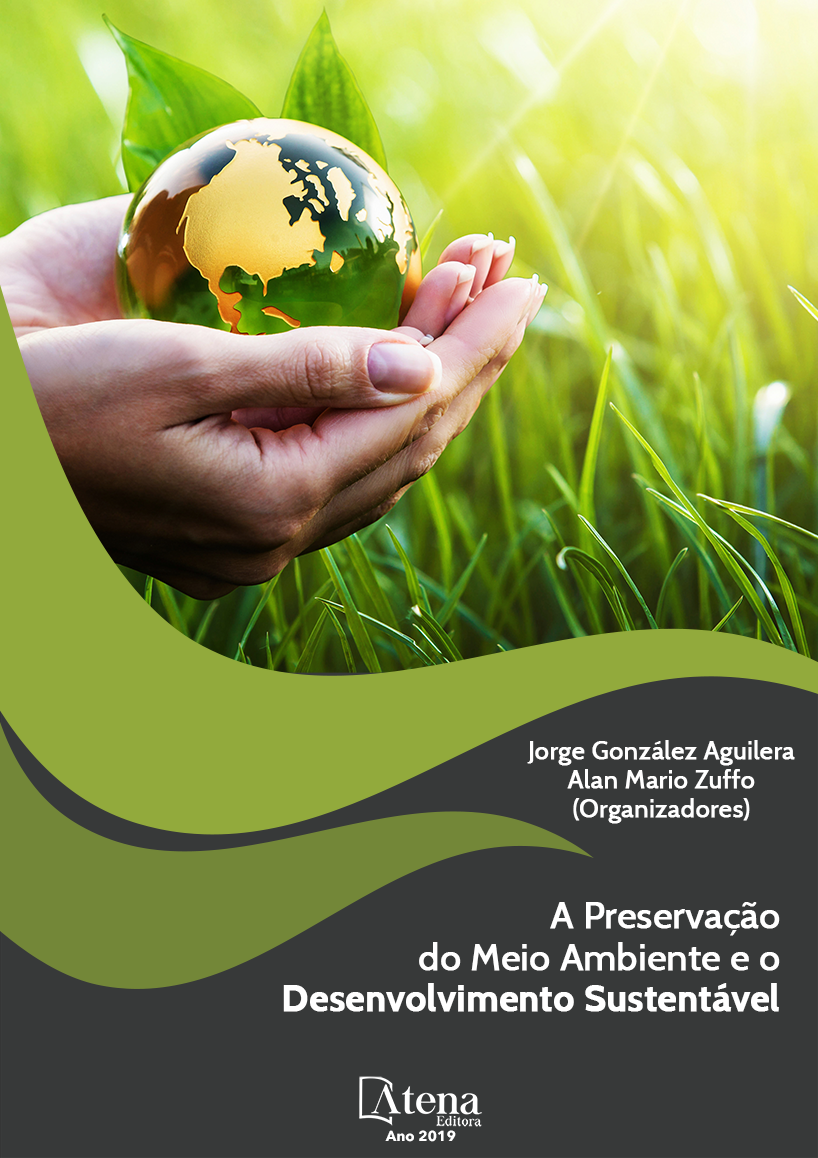
Biotecnologia ambiental e desenvolvimento agrícola sustentável
Atualmente, o Brasil é o maior
consumidor de agrotóxicos no mundo e seu uso
incorreto vem causando problemas ambientais.
Formulados por xenobióticos, acumulam-se
no solo originando moléculas recalcitrantes
com capacidade mutagênica, nociva aos
organismos vivos. Diante destes problemas, a
sociedade mostra-se mais exigente, preferindo
alimentos oriundos da agricultura sustentável.
Entre as técnicas de manejo, destaca-se o
controle biológico, alternativa empregada no
combate aos organismos pragas. Sua ação
baseia-se no uso de inimigos naturais, sejam
eles, patógenos, parasitóides ou predadores,
que colaboram para o equilíbrio populacional
nos ecossistemas. Diatraea saccharalis, é
considerada responsável por grandes prejuízos
ao setor sucroalcooleiro, sejam eles de forma
direta, devido seu hábito alimentar mastigador
durante a fase larval, ou de forma indireta,
quando fungos penetram pelos orifícios abertos
pelas larvas no colmo e causam a inversão da
sacarose armazenada pela planta. Bioinseticidas
formulados com Bacillus thuringiensis têm sido
utilizados por décadas no controle de insetos
pragas tendo como principal característica a
síntese de toxinas, especificas para diferentes
organismos, e portanto, seu uso é considerado
seguro para o meio ambiente. Em insetos, a
principal via de contato para avaliação dos
efeitos de bioinseticidas ingeridos é o intestíno
médio, local de síntese enzimática, digestão e
absorção de nutrientes. Este órgão é constituído
por um epitélio simples, onde se encontram
células colunares, caliciformes, regenerativas e
endócrinas. A ação de entomopatógenos sobre
estas células, pode ocasionar danos severos
que interferem em funções vitais resultando na
morte do inseto por inanição e/ou septicemia.
Biotecnologia ambiental e desenvolvimento agrícola sustentável
-
DOI: 10.22533/at.ed.36519140810
-
Palavras-chave: Agricultura. Pragas. Entomopatógenos. Bactérias.
-
Keywords: Agriculture. Pests. Entomopathogens. Bacterial.
-
Abstract:
Currently, Brazil is the largest
consumer of agrochemicals in the world and its
incorrect use has been causing environmental
problems. Formulated by xenobiotics, they
accumulate in the soil-giving rise to recalcitrant molecules with mutagenic capacity,
harmful to living organisms. Faced with these problems, society is more demanding,
preferring food from sustainable agriculture. Among the management techniques, it is
worth mentioning the biological control, an alternative used to combat pest organisms.
Its action is based on the use of natural enemies, be they, pathogens, parasitoids
or predators, that collaborate for the population balance in the ecosystems. Diatraea
saccharalis is considered responsible for large losses to the sugar and alcohol industry,
directly due to either its chewing food habit during the larval phase, or indirectly, when
fungi penetrate the holes opened by the larvae on the stem and cause the sucrose
inversion stored by the plant. Bioinseticides formulated with Bacillus thuringiensis have
been used for decades in the control of insect pests, having as main characteristic the
synthesis of toxins, specific for different organisms, and therefore its use is considered
safe for the environment. In insects, the main route of contact to evaluate the effects of
ingested bioinsecticides is the middle intestine, site of enzymatic synthesis, digestion
and nutrient absorption. This organ is constituted by a simple epithelium, where there
are columnar, goblet, regenerative and endocrine cells. The action of entomopathogens
on these cells can cause severe damage that interferes with vital functions resulting in
death of the insect by starvation and / or generalized infection.
-
Número de páginas: 15
- Helio Conte
- Bruno Vinicius Daquila


